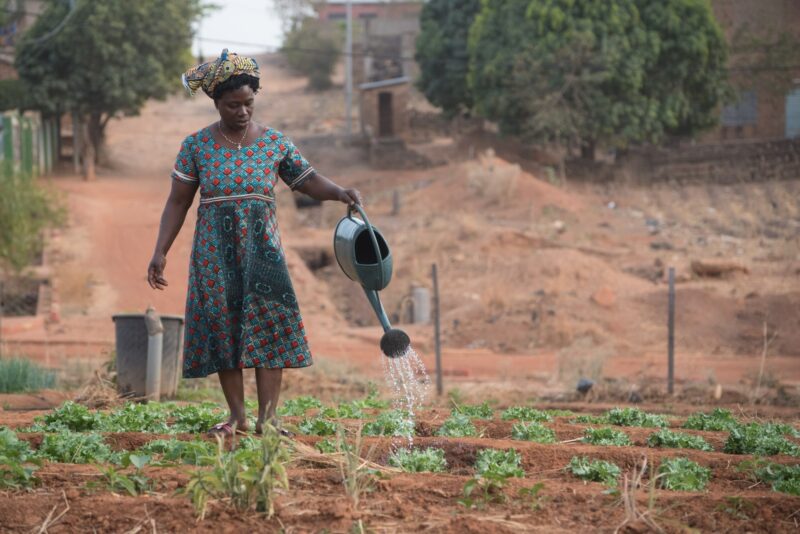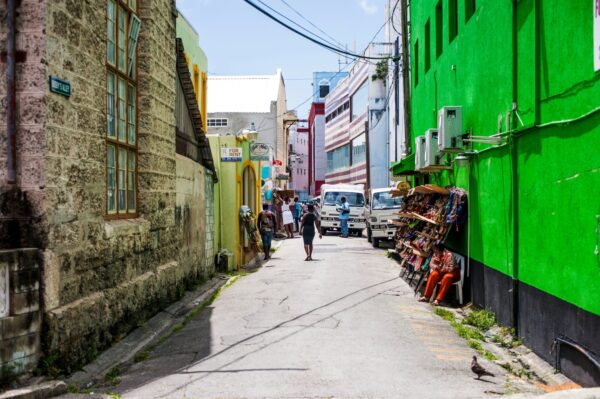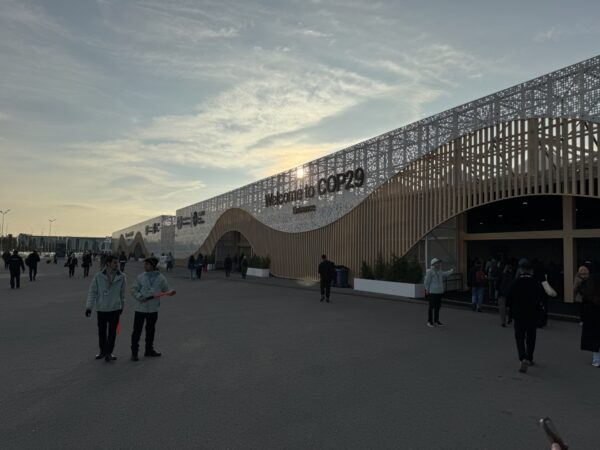Co-designing vulnerability assessment methodology with local actors in Benin
Alcade Segnon, Sarah D’haen, Edmond Totin
On 31 January and 1 February 2018, Climate Analytics and the Centre de Partenariat et d'Expertise pour le Développement Durable (CePED) organised a scientific workshop on vulnerability assessments in Cotonou, Benin. The workshop brought together over 30 scientists, practitioners and policy actors to discuss the practical organisation, timeline and methodological approach to assess vulnerability in the three nationally pre-identified sectors — agriculture, water and health.
Share

The three studies will assess both contemporary vulnerability and potential vulnerability over the next thirty years. They are part of the scientific capacity building component of the Science-based National Adaptation Planning in Sub-Saharan Africa project, a project funded by the German Federal Ministry for the Environment, Nature Conservation, Building and Nuclear Safety (BMUB), and implemented by the Deutsche Gesellschaft für Internationale Zusammenarbeit (GIZ) in collaboration with Climate Analytics.
To be eligible for international funding, developing countries’ adaptation plans and projects increasingly need to show that they address problems attributed to climate change rather than generic development problems. In practical terms, this translates into an increased demand to meticulously document or ‘prove’ full impact chains, from projecting climate hazards, over assessing exposure and vulnerability. Ultimately, any adaptation measures should identify (and, if necessary, quantify) potential risks and impacts to national socio-ecological and technical systems to climate as well as relevant potential adaptation measures.
Climate Analytics addresses these challenges under one of the components of the PAS-PNA project. Together with researchers from national universities, public research institutes, and practitioners from government agencies, our experts will design and conduct ‘full impact chain’ vulnerability studies, and finally identify appropriate adaptation measures. Other activities under this component includes advancing the integration of scientific information into national policy-formulation processes and, more generally speaking, supporting science-based decision-making in the francophone Sub-Saharan African region. Participants of the workshops acknowledged the importance of this joint-initiative as reported.
We count a lot on this study. It will help to fill a gap and identify robust scientific evidences to strengthen our climate related proposal. Having such knowledgeable scientists around the table with complementary expertise is already a good sign!
After a warm welcome from Mr. Seibou, Director of the CePED, Climate Analytics’ national implementing partner, participants began to consolidate the three thematic research groups initially formed around the three priority sectors at the first scientific workshop in December 2017. Each of these groups comprises a different category of stakeholders and is responsible for conducting the vulnerability study under their respective sectors.
Over several working sessions, the three thematic groups identified a common conceptual framework for climate vulnerability assessments as well as a first set of indicators for different aspects of both contemporary and future vulnerability in each sector. They also made a joint decision to follow the AR 4 vulnerability framing conceptualising vulnerability as a function of exposure and sensitivity to climatic stressors and adaptive capacity of the system or sector (IPCC, 2007).
Thus, each group discussed the necessary steps in developing the full impact chains and the data needed at each stage. The agricultural sector study will focus on the potential challenges brought along by climate change in the agricultural development pole nr 4 (point 1), whereas the water sector study will focus on flood risk and water availability in the Ouémé River Basin by 2050 (point 2). The health sector study will focus on the influence of climate change on malaria risks in the Southern Region of Benin by 2050 (point 3).
1. Agriculture sector vulnerability assessment (Agriculture)
The research group proposed a bio-economic modelling approach, which integrates historical climate change and variability as well as future climate projections, crop and economic optimisation models to assess both contemporary and future vulnerability of the agricultural sector.
2. Water sector vulnerability assessment (Water)
The research group will estimate (a)both contemporary and future flood risk and potential flood-prone areas in the Ouémé river basin using analysis of extreme rainfall events and hydrological modelling; (b) Vulnerability to flood by integrating information on flood risk and adaptive capacity and © Water availability using analysis of rainfall variability and change and hydrological modelling. Water use data and information on adaptive capacity will be combined to estimate vulnerability to water scarcity.
3. Health sector vulnerability assessment (Health)
As an endemic disease and the main cause of mortality of children under the age of 5, Malaria is an important public health concern in Benin. The research group will estimate impacts of rainfall and temperature variability and change on Malaria prevalence. Later, it will map out potential population groups and areas at risk of malaria disease-transmission. By integrating information on adaptive capacity (e.g. income, direct and indirect cost of treatment of simple and severe malaria, accessibility to treatment centre) coupled with information on Malaria risk, the group will be able to assess vulnerability to Malaria under climate change.
Lessons learnt
Several lessons can be learnt from this participatory vulnerability assessment methodology development.
First, centring the workshop around more ‘technical’ discussions, we have been able to create a space for informal exchanges between researchers from universities, public research institution, practitioners and government agencies, unlocking a plethora of opportunities for collaboration between institutions who otherwise rarely interact directly. A key example was the informal discussion between university researchers and Meteo Benin, the national meteorological agency, on access to historical climate data and the need for more structural collaborations or partnerships beyond the framework of projects such as PAS-PNA.
Second, this workshop enabled the identification of a wide array of expertise and competences of the members across the different thematic groups and, more importantly, demonstrated how well they complemented each other.
More importantly, it has demonstrated, not only how well they complement each other, but also how an integrated approach can facilitate policy-relevant research.
Finally, having a policy actor as the facilitator of the workshop was crucial in bridging the gaps between research and policy. It helped researchers understand what national politicians may expect from the in-depth vulnerability studies and, more generally, how results can be communicated to facilitate their uptake in decision-making processes.
A former Member of Parliament asked:
What do you want me to tell my electors about your 30-year vulnerability projections when they only elect me for a 5-year term? I need to understand what your modelling is telling about the coming 5 years, not 30 years… this is too far for us!











